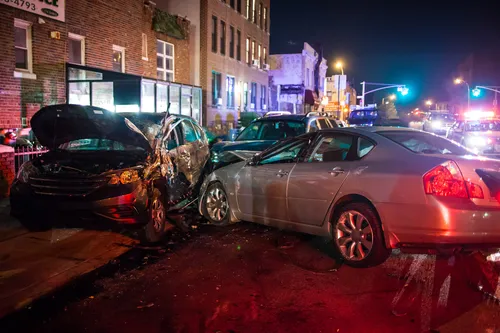Road rage is all too common a problem in the United States. You’ve most likely run into road rage yourself, whether you’re the victim or the aggressor. According to DriversEd.com, 50 percent of all drivers respond to aggressive acts with antagonizing actions, including but not limited to: light-flashing, honking, tailgating, shouting, blocking, and rude gesturing.
If you ever encounter road rage, you’ll need to know the signs, causes, avoidance strategies, and liabilities.
Signs of road rage
There are signs that could give fair warning to escalating road rage. They include:
- Disrespectful hand gestures
- Yelling
- Honking
- Refusing to yield right of way
- Flashing lights
- Speeding
- Tailgating
- Changing lanes/blocking lanes
- Sudden braking
- Physical attacks
- Failure to signal
Causes of road rage
Of course, there are several incidents that negatively affect people daily, but the main two reasons for road rage boil down to: impatience and congestion.
But what could possibly be leading to impatience and congestion on the asphalt?
Outside of a poor sleep schedule, these are just a few of the causes:
- Heavy traffic – Rush hour is quite common in cities all over the US. In fact, Florida has several cities – Tampa, Miami, etc. – that are considered to be in the top ten cities of the worst road rage (TRED, 2017). In fact, Florida is leading the nation in having the most road rage cases (ABC Action News, 2018).
- Delays – Many people tend to become impatient and angry when delays in their schedule occur. These delays can be due to oversleeping, laptop or car issues, construction, detours, or even motor vehicle accidents. This can lead to aggressive driving and road rage.
- Tailgating – Just as tailgating can result from road rage, tailgating can cause road rage.
- Distracted or slow driving – Sunday drivers can cause a lot of road rage among those looking to go the speed limit (or above the speed limit, in many cases).
How do I avoid road rage?
Road rage is incredibly dangerous, but it is avoidable. You can do your part by:
- Planning your route – If you’re heading to somewhere you do not have experience driving to, you should plan out your trip, using Google Maps or other map apps. You’ll find the time it takes to travel from point A to point B, any potential delays, and more. Furthermore, give yourself plenty of time to go there. Plan to leave 15 – 30 minutes in advance.
- Calming down – Keep yourself calm, whether by using meditation techniques, relaxing tunes, ambiance, or audiobook, or whatever else that can keep you calm.
- Being positive with your gestures – For instance, if someone lets you merge into a lane, wave at them to show your appreciation.
- Not tailgating – Maintain a safe distance from the car ahead of you, no matter the case, because it decreases the chances of road rage and helps you avoid a car accident.
- Not using your horn unless absolutely necessary – A driver still idling at a stoplight, even when the light is green? Honk. Someone going a little slower than what’s comfortable for you? Don’t honk. Never honk out of frustration, as it only causes more stress for everyone.
- Avoiding the aggressor – If you’re near an aggressive driver, make sure you’re a safe distance away from them, as they may be speeding and constantly switching lanes, don’t reciprocate any dangerous actions, and don’t stop (if you must, make sure to call the police and keep your doors and windows locked).
The liabilities of road rage
If you encounter an aggressive driver and have been harmed by them, you can absolutely hold the aggressor liable by suing them for property damage or personal injury. You can possibly receive compensation for medical bills, lost wages and pain and suffering.
Additionally, you can file a police report and press criminal charges on the person, as they can be potentially charged with assault and battery (battery if the driver hits your car intentionally or if the driver leaves the car and strikes you or your vehicle). However, it is imperative to know that the same can apply to you, if you have succumbed to road rage.
Road rage is a deadly, common occurrence in the United States, but an occurrence that can be completely avoided. Realize the signs and causes of road rage, take caution, and protect yourself from becoming a victim (or aggressor). Regarding liabilities, take the time to understand what can happen if you are involved in a road rage incident.

